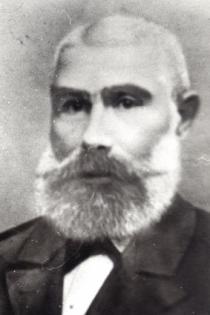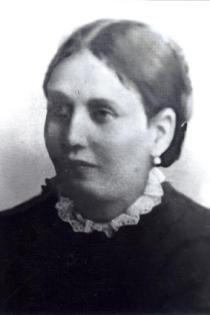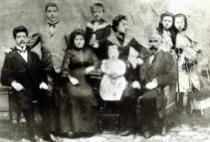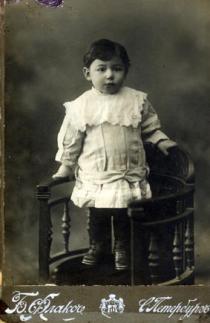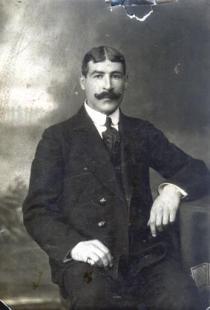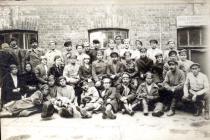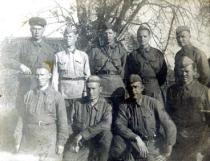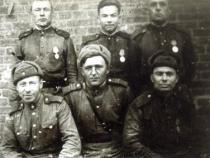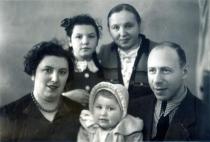This photograph was taken in 1930 in Leningrad. I misremember my uncle, whom you can see in this photograph. Here I’d like to tell you about my life at that time.
My school was named Labour School #25. I liked subjects connected with nature: geography, natural sciences. I spent at school only 5 years. I loved my first teacher. She was young and seemed to me very beautiful. She treated children kindly, with true affection. The last person in my scale of rank was the old teacher of history. All the time she grumbled and often came angry with us. And when she became angry, her detachable jaws jumped out. She seemed to us to be an embodiment of the tsarist regime, while we felt already Soviet. Mainly because of her I did not want to continue my studies. Almost all our teachers started working as teachers already before the Revolution, there were no Soviet teachers at that time yet. At school I never came across any manifestations of anti-Semitism, never heard words 'a dirty Jew'. Besides school I was engaged in nothing.
All my school friends were Russian, but I did not choose them on purpose: there were not many Jews around. And in the College it was vice versa: there studied many Jews, and my friends were mainly Jews. Among my friends in our court yard there were a lot of Jews. Next to us there lived a Jewish family, and I made friends with 4 boys of that family. At school I had a friend: we were together since the 2nd form. He lived near Sennoy market. [Sennoy (Hay) market is one of the oldest markets of Petersburg. The most undesirable persons used to gather there. Scenes of many novels of Dostoevsky (1821-1881), a famous Russian novelist were laid around the Sennoy market.]
His house was surrounded by warehouses. During the flood of 1924 Sennaya square and the territory around it were running with water. Together with my friend we found some boards and made a raft. We started on navigation, and I narrowly escaped drowning. We had to spend a lot of time sun-drying our clothes before we took the risk to go home. When I became older, a friend of mine (a Jewish boy Margolin) dragged me to the Maryinsky theatre. [Opera and ballet Maryinsky theatre was open in 1783 in St. Petersburg. There worked outstanding masters of Russian opera and ballet art.] He wanted me not to be a spectator, but to take part in crowd scenes. I liked Maryinsky theatre very much, especially (to tell the truth) girls - ballet dancers. Together with Margolin we used to visit each other, played checkers, and sometimes cards.
I forgot to say that at school I was a pioneer, and even not an ordinary pioneer, but an assistant of the pioneer leader. [All-Union Pioneer Organization named after Lenin was a mass communist organization of children and teenagers at the age of 10-15.]
This public work took a lot of time. They involved me in the process of convincing careless pupils to hit the books. I tried to do my best bettering one girl and we fell in love with each other.
Once I saw a poster. There I saw a worker (standing near his lathe) and a shower of sparks from under a cutter. At that very moment I ardently wished to become a turner. It happened in 1932. I was extremely stubborn: it was impossible to make me change my mind, so parents sent me to master turning to Shorshtein, an owner of a turning workshop. His workshop performed the orders for factories. I did not manage to work there for a long time, because workers at that place were men of the old school, and I did not like it. They taught me in the old way, believing that a pupil had to begin with the most dirty work. 'Remove shaving, clean the floor!' I disliked it. So after a year I decided to find a youth collective. Simultaneously I studied at rabfak.

